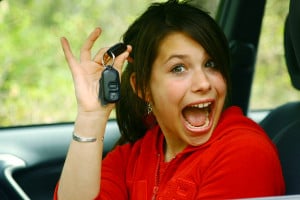 Some of the best advice given to anyone who is out for a night of drinking is to plan ahead for the ride home. For many, this means the safe, sober ride home is a taxi or a “dial-a-ride” program, while others may seek assistance from friends who pledge to not drink, in order to be the “designated driver” of the night. Unfortunately, there are always risks involved when out at a bar or with friends at a party, and sometimes, the designated driver is not always the safest ride home.
Some of the best advice given to anyone who is out for a night of drinking is to plan ahead for the ride home. For many, this means the safe, sober ride home is a taxi or a “dial-a-ride” program, while others may seek assistance from friends who pledge to not drink, in order to be the “designated driver” of the night. Unfortunately, there are always risks involved when out at a bar or with friends at a party, and sometimes, the designated driver is not always the safest ride home.
A designated driver, or DD, is trusted to remain sober in order to facilitate a safe ride home for others who are drinking alcohol. Technically speaking, many people consider the “least drunk” person in their group of friends to be the designated driver, but, as people drink alcohol, the perception of their own sobriety and that of others is skewed. Because of this, relying on a person to be the designated driver requires trusting him or her to refrain from drinking completely, throughout the event, in order to maintain the level of sobriety needed to operate a vehicle safely.
Last year, a study in the Journal of Studies on Alcohol and Drugs found that:
- 35% of designated drivers may have had too much to drink.
- 20% of designated drivers had blood-alcohol levels high enough to impair their driving.
If your designated driver has been drinking, it is likely that he or she may not be sober enough to legally drive. For anyone who drinks and drives, there are risks to others on the road and to passengers in the vehicle, which is why DUI/DWI laws are so important and the consequences severe. With jail time, court costs and the installation of an ignition interlock device on the line, being a designated driver is a position of trust and honor and not worth risking the lives of others by being the “most sober” of the group.

Leave a Reply
You must be logged in to post a comment.